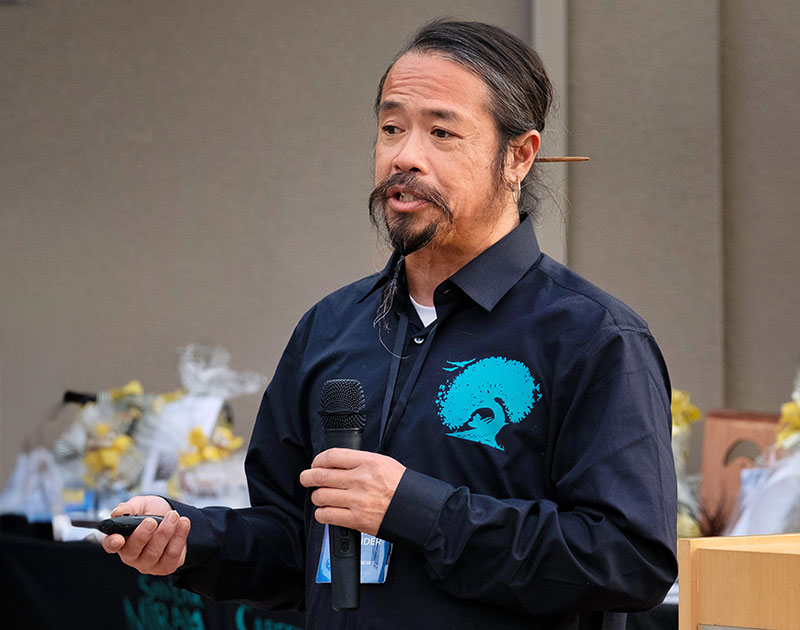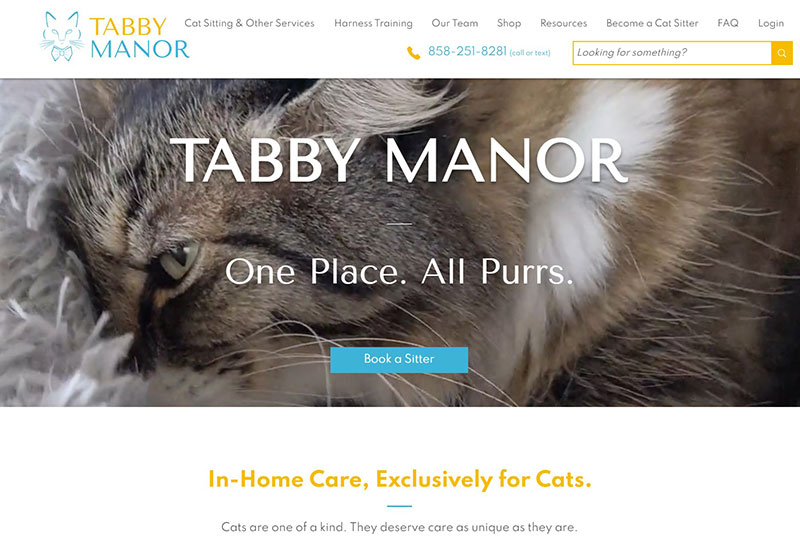According to Lightcast, a leading provider of economic and labor market data, SDCCD alumni generate $3.8 billion in added income to the local economy, which is equivalent to supporting 35,667 jobs during fiscal year 2022-23. Overall, the District added $4.5 billion in economic income to the San Diego County region in fiscal year 2022-23, a number which could not be accomplished without the new and growing businesses in the area that found their footing through no- to low-cost programs offered throughout the SDCCD.
Here’s a glance at the programs that support entrepreneurs and small businesses around San Diego and the students and alumni who are thriving because of the knowledge and support they gained through the SDCCD.
Gaining the ‘know-how’ at Mesa College
Mesa College offers several business programs to students, including the Small Business Virtual Incubator where students can earn a certificate. The 16-week program works with cohorts of 12 to 15 students who have the opportunity to receive personalized business coaching.
Professor Eduardo Landeros said the program caters to students who are interested in starting a business or who would like to expand an existing business but need more resources and advice.
“The Small Business Virtual Incubator was created to help students execute their business plan by providing guidance from industry experts,” Landeros said. “The SBVI also provides economic support to help students cover minor business expenses, such as inventory, small equipment, supplies, licenses and permits, software, etc, that they may need to get started.”
For example, Landeros said one former student had years of experience working in the food industry but didn’t know how to start her own business. Through the program, she learned how to design an effective marketing and advertising plan, while also receiving stipends to pay for equipment. Today, she has a catering business that specializes in outdoor fine dining.
“Students are mostly grateful for the ‘know-how’ and the financial assistance we provide,” Landeros said. “Learning from industry experts or current business owners who are already doing what they want to do is priceless.”
With a bachelor’s degree in neurobiology already in hand, Sarah Uran turned to the Mesa College Small Business Virtual Incubator to help her launch her own medical communications company. After finishing the program in December, Uran continues to work on the small details of her company, Trusscare, which will specialize in resources and education to empower patients with effective communication skills to ultimately lead them to better medical care, ahead of a full launch later this year.
“One of the most valuable lessons I gained from the Small Business Virtual Incubator was learning how to believe in myself and my entrepreneurial vision,” Uran said. “The program fostered a supportive environment that encouraged me to trust my instincts and take calculated risks. I highly recommend taking advantage of this transformative experience.”
A lab of opportunities at Miramar College

At 50 years old, surfer Anh Pham had a vision of delivering eco-friendly wooden surf craft to the market. With a passion for surfing and protecting the environment, the Vietnam War refugee said he learned how to shape wooden surfboards, but didn’t know how to turn his passion into a business until he joined the Regional Entrepreneurship Center Innovation Lab, which had its official grand opening in January at its permanent space at Miramar College.
The REC Lab is a startup incubator program that connects budding entrepreneurial students with local mentors. With a particular focus on supporting diverse business owners, the program offers workshops, coaching, and access to printers and a variety of technology.
“There was a huge world of business that I didn’t know about until I joined the REC Lab,” Pham said. “This organization opened so many doors for a 50-year-old first-time college student.”
Since joining the REC Lab, Pham learned how to build brand recognition and produce more boards, which are modeled on ancient surf crafts of Paepo’o and Itago-nori, to sell. He said his company, Earth Fan Surf, is now ready to receive its first round of investments and launch sometime in 2024.
Tanya Hertz, director of the REC Lab, said the organization fills a gap in the market.

“We’re an incubator and accelerator that isn’t charging an arm and a leg to help grow your business,” Hertz said. “We cater to regular people who want help to successfully grow their companies.”
Hertz said the REC Lab has connected hundreds of people in the local business industry and helped launch more than 200 businesses, ranging from food to technology to childcare.
Jennifer Barnes, the CEO and founder of Optima Office, has been a mentor at the REC Innovation Lab for three years. From presentations to personal business advice to reviewing business plans, Barnes said all her experiences have been positive.
“It’s an amazing program,” Barnes said. “If I can help entrepreneurs live the lives they want to live, a life that is good for them and the economy — I consider it a win.”
Ongoing growth at San Diego College of Continuing Education

At San Diego College of Continuing Education, students will find business programs that can be completed in just one semester, including planning and growth courses where students can earn certificates.
“Our program empowers students with invaluable practical business knowledge, equipping them with the essential skills necessary to navigate real-world challenges such as understanding the required permits and licenses for establishing a business,” Professor Matthew Rivaldi said. “Guided by friendly, experienced professors, our students develop a plan to not only launch, but also sustain a profitable business.”
Natasha Gottlieb earned her Small Business Planning Certificate and Small Business Growth Certificate in fall 2020, which helped her turn her side-gig of cat sitting into a full-fledged business. A few months later, Tabby Manor began accepting clients. Since that exciting launch, Tabby Manor’s sales have grown at an annual rate of 67% from 2021 to 2023 with nearly $200,000 in revenue in 2023.
“Beyond the information on how to start a business, the Small Business Program really focused on how to make that business successful,” Gottlieb said. “Because of the Small Business Program, I have a well-thought out business model with a clear vision of business goals and what is needed in order to meet them.”
Gottlieb leans on her background in the veterinary field to offer clients more than just a cat companion – she’s also trained to administer medications and injections. Tabby Manor now has 13 cat sitters that offer a variety of services throughout 36 ZIP code areas around San Diego County.

Also available at SDCCE is the Clothing and Textiles Sewn Products Program where students can earn a certificate while also learning entrepreneurial skills. Students learn how to cut, sew, ideate new products, and conduct market research.
“I believe the key to our students creating and/or advancing their businesses lies in our program’s mission for sustainability, insisting on finding niche markets, providing industry interactions, and the access to digital technologies we provide,” Program Chair Shirley Pierson said. “It is a holistic approach that transforms many of their lives.”
Transformation is a word alumnus Darius Stokes would use. He’s the founder of luxury clothing company, Dluxeware. A former foster youth with a dream of becoming a designer, Stokes took the SDCCE programs and learned how to construct garments that are inclusive of all gender identities and body types. He’s also learning how to start a production company.
“One of the best lessons I learned was how to break down large projects into smaller portions to complete the project in a time efficient manner,” Stokes said. “The professors have helped me tremendously.”
Managing a business for beginners at City College
Regardless of the type of business students want to launch — City College helps make the dream attainable. The second largest college within SDCCD has a long history of business-
focused offerings, including an associate degree and certificate of achievement in Business Management.
The program offers students courses on how to start a business, operate a business, or work in a small business — creating the stepping stones needed for hopeful entrepreneurs to succeed.
City College offers other affordable certificate programs including Starting and Managing a Small Business for students currently operating a small business who want to strengthen their business skills, and Working Education, which allows students to gain experience working in businesses on campus.
Professor Tania Mustafa said the Business Department’s offerings have undergone significant transformations to prioritize the needs of a diverse student population and the evolving needs of the business industry. For example, the department recently secured a grant to provide free textbooks to students who may need financial support.
“These initiatives highlight the department’s commitment to student success and academic excellence — ensuring access to resources and opportunities for personal and professional growth,” Mustafa said
